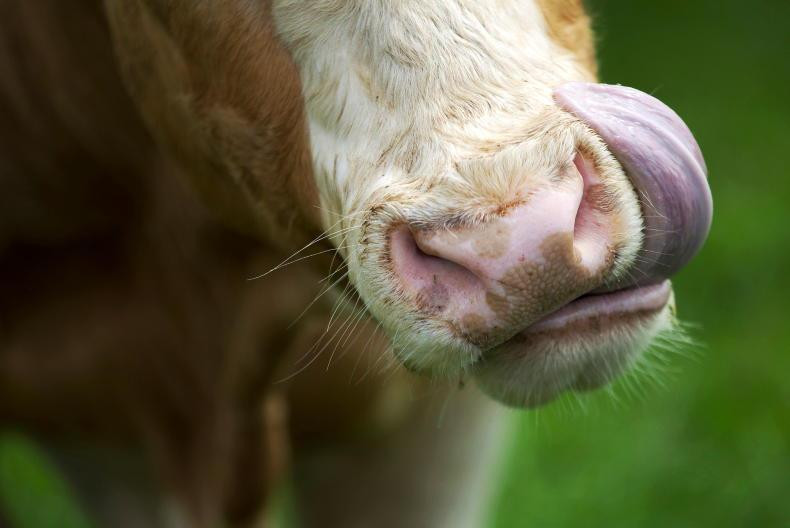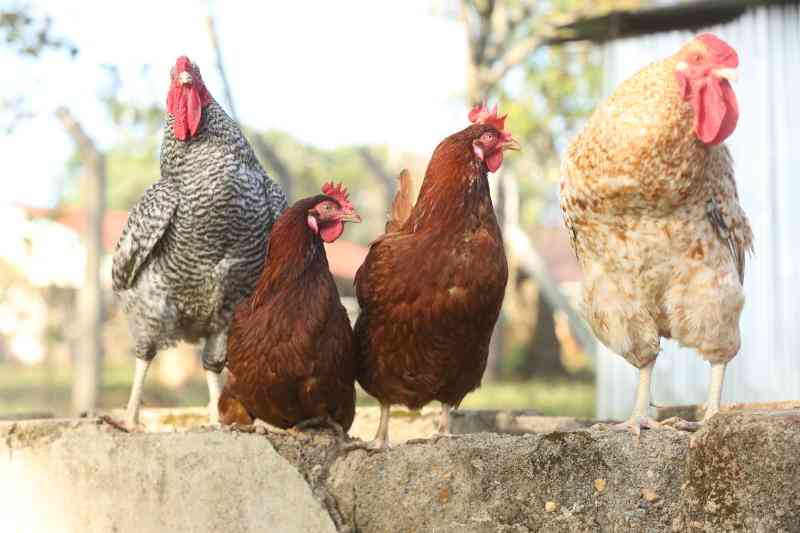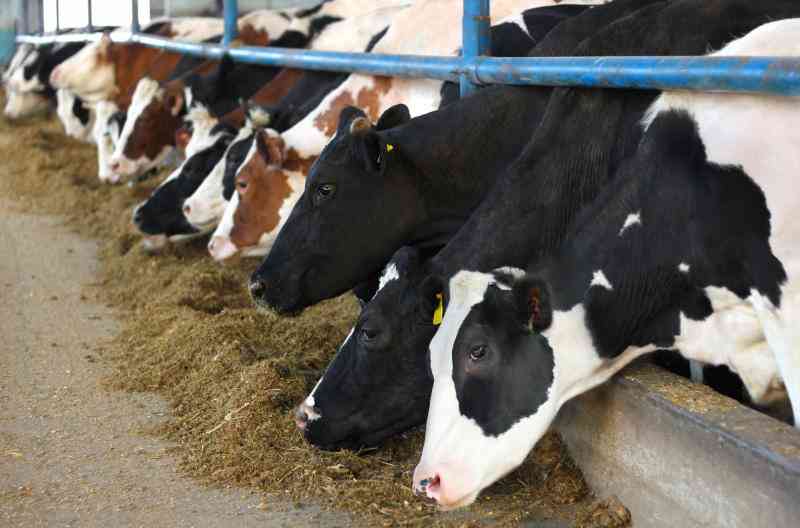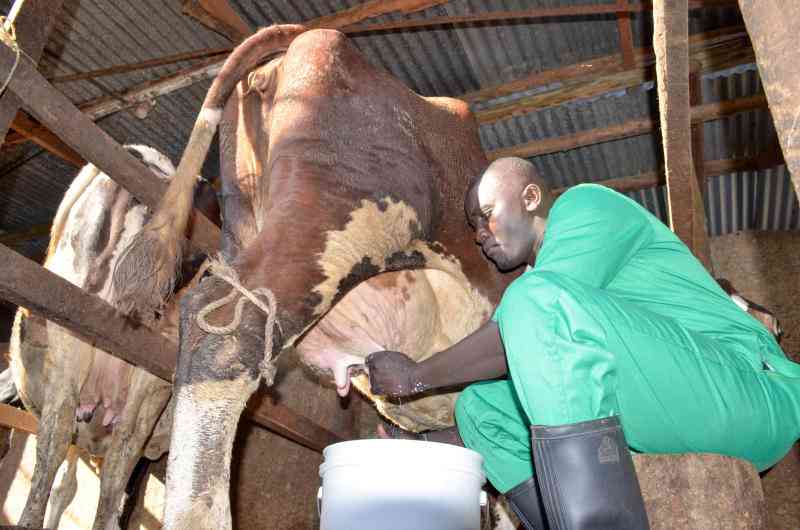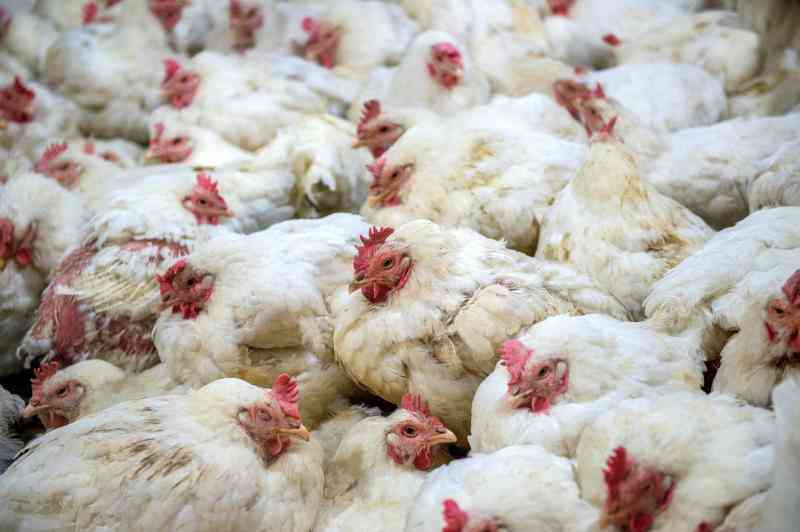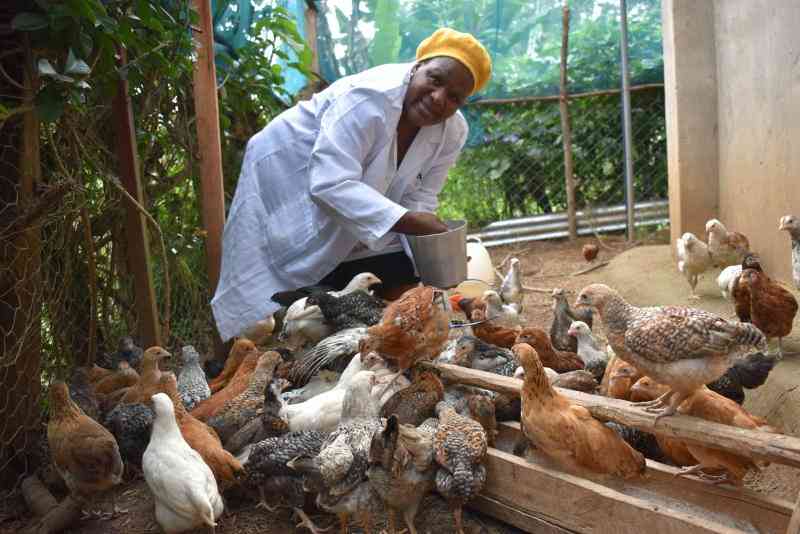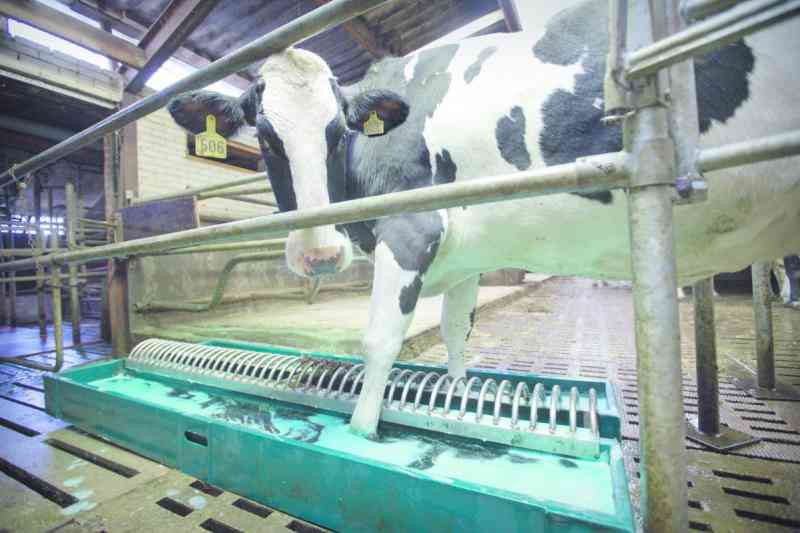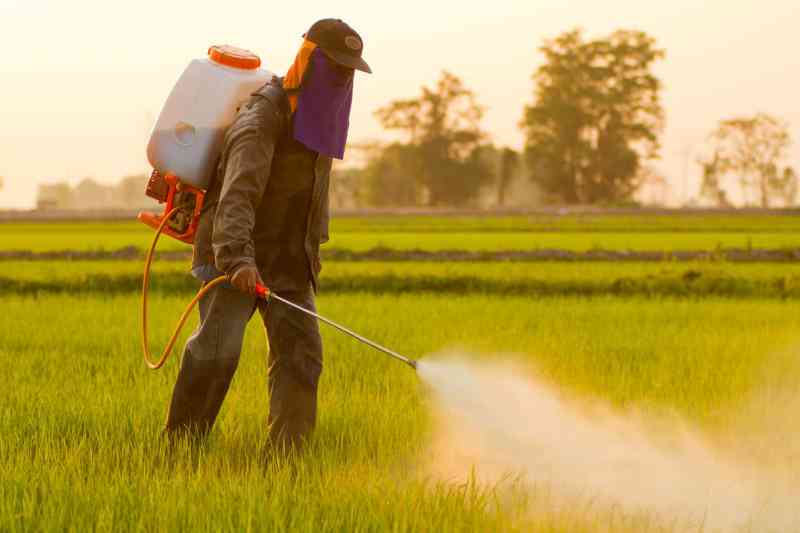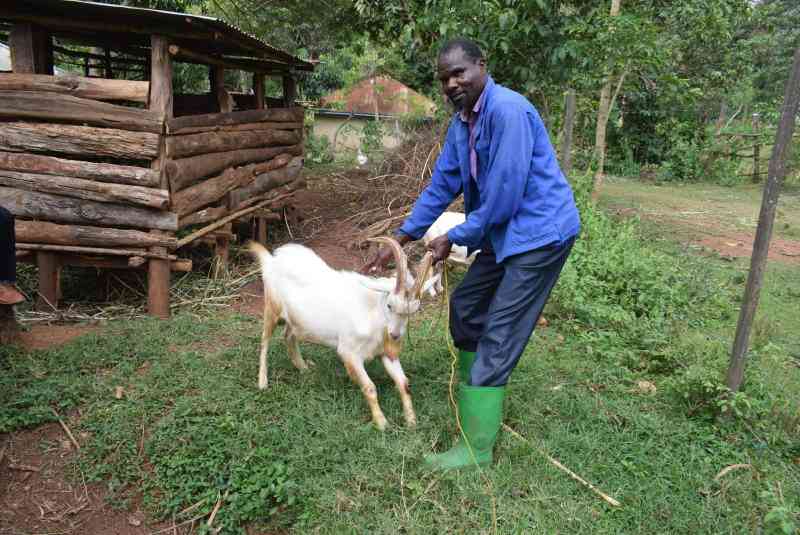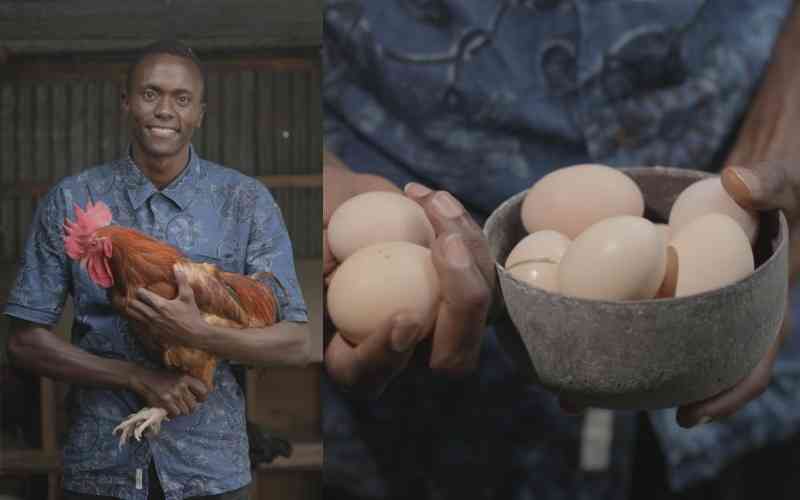
Emmanuel Ragot, a 29 year old poultry farmer at his farm in HomaBay County. [Courtesy]
If you do not work hard, you will go back to the village and farm," comments like these were repeated so much during the formative years of most people, that degraded farming and the agricultural sector as a whole.
White collar jobs were and are still considered the epitome of success. You leave the village and go look for an office job. However, times have changed, now young people are investing in agriculture. Case in point 29-year-old Emmanuel Omondi Ragot from Homa Bay County.
Ragot left his accounting career to become an improved Kienyeji poultry farmer.
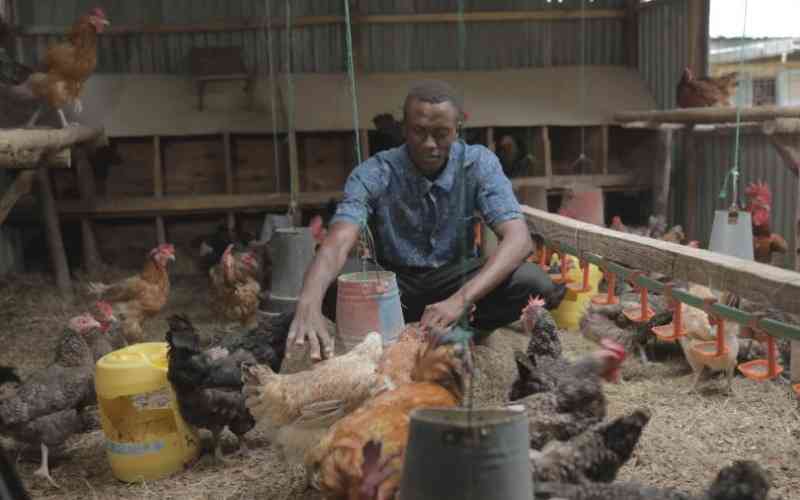
29 year old Emmanuel Ragot
"My major motivator was money, when I was employed as an accountant at a hotel in Nairobi I used to pay the suppliers and there was one person who used to bring about 200-300 birds every week, I looked at my pay check at the end of the month and what I used to pay him then I said no, maybe I need to shift my focus," he said
Ragot embarked on research before officially starting the business.
"It was more of learning on the job. I visited a farm in Bungoma County and it is from that farm that I came with the basic knowledge that I got to start with, built over the years and I kept learning and sharing with other farmers," he said
How It started
Ragot started with 10 birds that he found at his home, in a period of about 2 months he multiplied them and had a total of 60.
"I sold them off and one of my brothers motivated me to consider it as a source of employment for me. When I went to buy the first batch of improved Kienyeji that we are now rearing I bought a total of 45 birds from Bungoma," he said
He sold the eggs as fertilized eggs, and bought an incubator. It had the capacity of 528 egg, a month later he bought another 528 egg capacity incubator.
"That grew my capacity from the initial 45 birds to being able to hatch 1056 birds per month," he added

By the time the Covid-19 pandemic was hitting the globe, Ragot and his partner in Awendo were able to supply 6000 chicks a month through a World Bank Program.
However, they had to outsource due to high demand. During that time within his space he had a head count of 1,700 birds, majority being chicks.
"When the market crushed. I lost most of them because of overcrowding," he said
At the moment Ragot is able to sell 100-200 birds a week to the market but not able to produce as much as he used to.
He has 5 employees. 1 at his farm, 2 at his supply shop and 2 at his fathers farm who is also into poultry farming.
Marketing
As a young person Ragot has fully embraced social media.
"Normally I run advertisements on Facebook, Instagram and Twitter. I am very active on Twitter, but the others are just for marketing bit of it. With the advertisements I am able to access markets within and without our county," he said
Ragot adds that Practical Action group also helped in marketing by creating a database of all the potential off takers of poultry within the County and then avail the database to the farmers and have a one on one interaction with the market.
"The information about the hotels that are buying chicken and related products are readily available," he said
Challenges of accessing loans
Ragot says that accessing loans from external financial institutions became a challenge since the requirements were a bit stringent.
"I had to provide a car that is not more than 10 years old, which I didn't have at the moment or had finances to acquire one or else I provide land, that which I still didn't have. It becomes challenging for a young businessman in the agribusiness to secure financing from financial insitutions," he said
Red Wiggler worms for protein content
On furthering his knowledge Ragot expanded his agro ecology expertise from the support he got from Practical Action.
"Practical Action supplied the red Italian worms that can be used to replace the protein content within the poultry feeds. That proved to be a little low cost because they only used to feed on kitchen remnants and helped us reduce the bio degradable waste," he said
However, Ragot says it become a little challenging to produce the worms after expanding his poultry farm.
How to produce red wiggler warms- Vermicomposting/Vermiculture
The red wiggler worm is a species of earthworm that thrive in decaying organic material like rotting vegetation, compost and manure.
It's high levels of protein, essential amino acids feed the nutritional requirements of fish and birds.
Narman Nyabinda, an agroecologist says that Vermiculture is using locally available raw materials from the farm or kitchen to increase the number of worms.
"At the same time you get three products; Vermiculture produces worms and these worms are protein source for chicks and pigs. The other thing you get is vermicompost," he says
Vermicomposting is therefore composting using worms; the word vermi in Italian means worm. Composting is collecting and storing plant materials so that they can decay then added to the soil to improve its quality. Also used as organic fertilizer.
Vermicomposting is the process of using worms to break down compostable material and digest it into worm fecal matter. The fecal matter that has high nutrients will also improve the soil.
Nyabinda also added that another product is vermi liquid. A latchet that drops off as disintegration of the organic waste is done.
"It is also a good pest repellant juice and foliar feed when sprayed to crops they become green and grow stronger, "he said
Nyabinda says once a farmer is given a kilogram of worms, the weight should double within a period of 1 month.
"It increases very first and farmers can give them to their neighbors. It solved a lot of problems because farmers can produce very rich products for their own use at farm level," he says
Benefits of vermicomposting
restores soil nutrients stabilizes soil, and enhances soil fertility reduces and eventually eradicates the need of chemical fertilizersDue to the increase in his poultry farms, Ragot says that he has been looking for other alternatives like the black soldier flies.
 The Standard Group Plc is a multi-media organization with investments in media platforms spanning newspaper print
operations, television, radio broadcasting, digital and online services. The Standard Group is recognized as a
leading multi-media house in Kenya with a key influence in matters of national and international interest.
The Standard Group Plc is a multi-media organization with investments in media platforms spanning newspaper print
operations, television, radio broadcasting, digital and online services. The Standard Group is recognized as a
leading multi-media house in Kenya with a key influence in matters of national and international interest.

